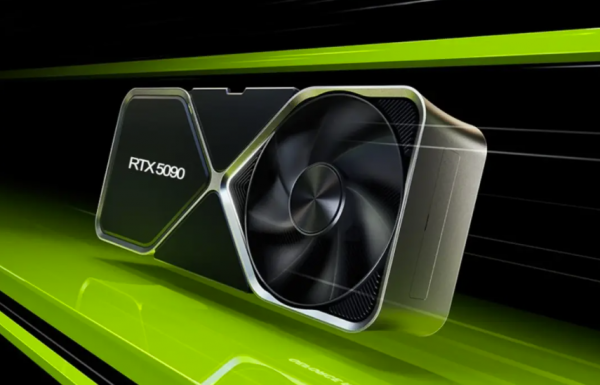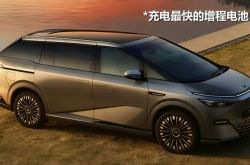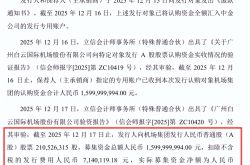The Future of AI as Painted by Jen-Hsun Huang: Netizens' Enthusiasm Outstrips Investment Market Reactions
![]() 01/09 2025
01/09 2025
![]() 581
581

The annual CES 2025, the world's largest consumer electronics show, is in full swing.
At this year's "tech Spring Festival Gala," NVIDIA's launch event stole the show as the "King of Chips." NVIDIA CEO Jen-Hsun Huang arrived with an array of novel products and, in his opening speech and subsequent interviews, detailed the rationale behind NVIDIA's latest moves.
Every time Jen-Hsun Huang appears, he delves into AI development trends and his vision for its future evolution, and this CES was no exception. He highlighted that "the next big AI trend is software coding," "AI generation cannot replace traditional rendering," and "the ChatGPT moment for robots is imminent."
Jen-Hsun Huang further asserted that companies like Lixiang, XPeng, Xiaomi, NIO, and BYD might have a more profound impact on the intelligent driving trend than Tesla.
The Next Big AI Trend: Software Coding
During his CES 2025 address, Jen-Hsun Huang discussed several prominent topics in the AI sphere.
He emphasized that the forthcoming significant AI trend is software coding. With 30 million software engineers globally, everyone will require a software system to assist in coding; otherwise, work efficiency will drastically decline, and code quality will suffer.
To capitalize on this trend, NVIDIA unveiled the LlamaNemotron model series, comprising three distinct versions: Nano, Super, and Ultra, catering to a wide range of areas from PCs and edge devices to large data centers.
Moreover, NVIDIA introduced the world foundation model "Cosmos," where developers can leverage Omniverse to create 3D scenes and convert them into photo-realistic environments through Cosmos, generating multiple models to aid robots in finding the most efficient way to accomplish tasks.
The Dawn of the "Physical AI" Era
At CES 2025, NVIDIA unveiled the Cosmos world foundation model platform, marking a critical milestone in accelerating the advancement of "Physical AI," aimed at propelling the fields of autonomous vehicles and robotics to new heights.
"The ChatGPT moment for robots is fast approaching. Much like large language models, the world foundation model is pivotal for advancing the development of robots and autonomous vehicles," Jen-Hsun Huang said. He added that NVIDIA created Cosmos to democratize physical AI and make general-purpose robots accessible to every developer.
Physical AI entails equipping robots with enhanced environmental perception, understanding, and interaction capabilities. Unlike traditional robots that perform tasks based on predefined programs, robots equipped with physical AI can better comprehend their surroundings and respond accordingly, grounded in physical laws. They excel at recognizing objects, predicting motion trajectories, and navigating and operating in complex environments.
Jen-Hsun Huang predicted that physical AI will revolutionize the $50 trillion manufacturing and logistics industries. From cars and trucks to factories and warehouses, everything that moves will be robotized and driven by AI.
In fact, physical AI has always been a significant trend in Jen-Hsun Huang's perspective.
Earlier, he stressed that "the new wave of AI is physical AI." During a keynote speech prior to the COMPUTEX conference last mid-year, Jen-Hsun Huang remarked, "Robotics technology driven by physical AI will revolutionize the industry. This is not the future; it is already happening."
NVIDIA's Growing Automotive "Circle of Friends"
"This sets the benchmark for future cars – they must possess robust autonomous driving capabilities. I firmly believe that this industry has undergone transformative changes." Jen-Hsun Huang sang high praise for China's electric vehicle industry, asserting that their technology is highly advanced, and their autonomous driving capabilities are exemplary.
On the exhibition's opening day, Jen-Hsun Huang announced the automakers with whom NVIDIA is collaborating in the automotive sector, including Tesla, BYD, Jaguar Land Rover, Lixiang Auto, Mercedes-Benz, Toyota, Rivian, Xiaomi Auto, Volvo, Lucid, and Zeekr, alongside numerous L4 autonomous driving companies.
However, among the automotive partners deeply collaborating with NVIDIA, as highlighted by Jen-Hsun Huang, XPeng and NIO were notably absent from this list.
Regarding the automotive business, NVIDIA anticipates that revenue this year will reach $5 billion, marking a more than fourfold increase over two years. Jen-Hsun Huang's newest automotive ally – Toyota – may contribute significantly to achieving this goal.
Jen-Hsun Huang revealed that NVIDIA will collaborate with Toyota to develop the next generation of autonomous driving technology, describing it as a "$10 billion industry." This partnership will harness NVIDIA's cutting-edge automotive chips and operating systems to enhance the performance and safety of autonomous vehicles.
AI Generation Cannot Replace Traditional Rendering
When discussing the impact of AI rendering technology on games and automotive applications, Jen-Hsun Huang dismissed the notion that AI-generated images will supplant traditional rendering.
He analyzed that "rendering remains the cornerstone for creating high-fidelity special effects images," and the evolution of gaming and automotive visual technology will continue to rely on the robust support of traditional graphics rendering and the advancement of computing power.
Specifically, AI-generated content necessitates "conditions" or "context" as input, and the generation of these conditions still relies on traditional rendering technology. For instance, in video games, to generate AI content that aligns with the scene, the system must initially provide preliminary geometric shapes, textures, and lighting information, which constitute the "context" for AI-generated content.
Netizens' Enthusiasm Outstrips Investment Market Reactions
Despite announcing a suite of groundbreaking products, NVIDIA's stock price unexpectedly plummeted.
In the recently concluded year 2024, NVIDIA's market capitalization surged by over $2 trillion, making it the company with the largest market value growth globally in 2024.
Market analysts believe that investors' expectations for NVIDIA's short-term benefits were unmet, and insufficient details were disclosed about its highly profitable AI chip business, leading to a stock price decline. Nevertheless, some analysts remain optimistic about its long-term prospects and foresee upside potential for its stock price, believing it holds advantages in multiple domains such as AI agents, robotics, and autonomous vehicles.
The newly released NVIDIA products and Jen-Hsun Huang's remarks have sparked an overwhelming amount of online discourse.
Numerous gamers have exhibited immense enthusiasm for NVIDIA's new GeForce RTX 50 series graphics cards. One netizen commented, "I've been eagerly anticipating the RTX 50 series for so long! Judging by the performance boost, I feel like I can effortlessly handle 3A masterpieces with 4K or even 8K resolution in the future. The ray tracing effect will undoubtedly be stunning. I need to start saving money to upgrade my computer!"
NVIDIA's layout in the AI field has also ignited discussions. One netizen remarked, "NVIDIA's newly released AI chips are invaluable for those of us involved in deep learning. Their efficient processing capabilities can substantially reduce model training time, accelerate research processes, and provide more robust hardware support for breakthroughs in AI technology. I'm eager to see its performance in practical applications."
Naturally, some netizens are comparing NVIDIA's products with those of its competitors. One netizen analyzed, "NVIDIA's new products are indeed impressive, but other brands are constantly catching up. I wonder how long NVIDIA's advantages will persist in actual usage. I hope to see more reviews and comparisons to help consumers make more informed decisions."





